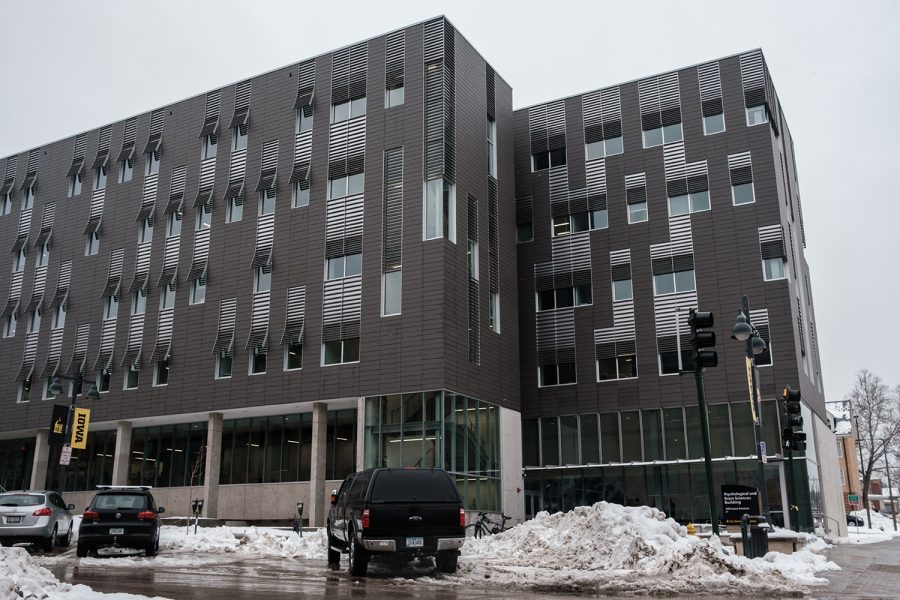Guest Opinion: New psychological building gives the department much-improved home
Everyone involved benefits greatly from this long-awaited upgrade in amenities.
The Psychological and Brain Sciences building is seen on Friday, January 24, 2020.
February 5, 2020
At long last, students in the Psychological and Brain Sciences Department have a home.
Sure, we’ve had the Spence Laboratories of Psychology since 1968, and clinical folks have Stuit Hall. But the department office, faculty offices, and several labs — including my own — were in Seashore Hall until this semester.
Seashore, however, was not a home — which I’m sure you could attest if you’ve ever visited office hours or had a discussion there.
Belly-up cockroaches could be found in the east side stairwell, and my “office” was a former men’s room, as evidenced by the sign still on the door. The only window in the room was above my desk, so high above me that I couldn’t see out of it anyway.
The new Psychological and Brain Sciences Building is the opposite of this and more. It is the new department’s home, but it also simply feels like a home.
Being in the new building, it’s easy to realize the importance of space.
There are actually windows, and lots of them. They’re abundant in labs, faculty offices, and common areas.
Labs share corridors together, leading to more conversations among undergrads, graduate students, and professors across labs. That’s much more than what was possible in Seashore. This can lead to promising collaboration opportunities between researchers whose work may appear too different to bridge at first glance.
Also, people will simply be happier coming to work in a bright, new, and inviting space.
Similarly, the common spaces on each floor offer ample opportunity for students to just come hang out and do their work, where they might run into and chat with a classmate they recognize but don’t know, or even one of their professors. It’s instrumental in breaking down that wall that causes professors to sometimes be seen as not human, but the arbiter of your future.
The University of Iowa’s Psychology Department has a rich history, beginning in 1890 — the sixth oldest in the U.S. It boasts alums including pioneering researchers such as Kenneth Spence, a highly decorated contributor to learning theory, and Albert Bandura, the most cited living psychologist. The UI also boasts current leaders in their respective fields across a variety of subfields within psychology.
It is only fitting that the department finally has a new building — a new home — to foster the inspirational leaders that will emerge in the decades to come.
— Todd Pruner, UI psychology Ph.D. candidate



